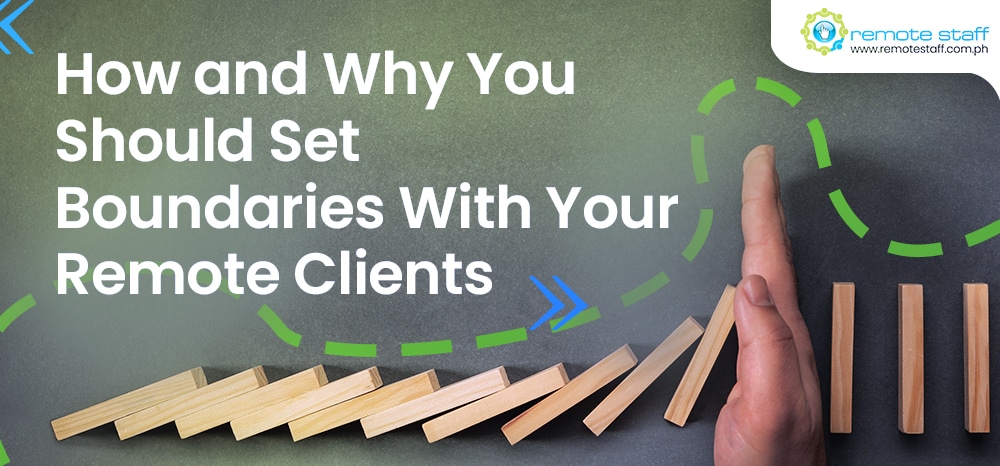One of the biggest ironies about working from home is that it can make achieving a work-life balance even harder. Yes, it’s entirely possible to burn out when you work from home. *cue theatrical gasp*
Fortunately, there are lots of ways to prevent this. One is by NOT working in your pj’s. (Read this to find out why.) Another is to structure your day with enough short breaks for naps, meals, and checking in with your kids if you have them.
However, there’s another factor to consider too: your boundaries with clients. Sure, we Filipinos are known for our hospitality and for going the extra mile, and that’s great. On the other hand, that can also be a slippery slope for abuse and scope creep (more on that in another article).
So, how do you maintain a healthy relationship and healthy boundaries with your clients?
Your Three Non-Negotiables

Ideally, you should already define both your role and ground rules early on, from the negotiation stage. So, if you’re, say, a graphic designer, your tasks shouldn’t include optimizing SEO, obviously.
Specifically, you need to lay down the cards for the following:
- Scope. Whether you charge an hourly or weekly retainer or are working on a project-based arrangement, you should state it clearly on the contract. Don’t forget to include your duties as well as the deliverables expected of you. Be as specific as possible so you can reduce the possibility of scope creep.
- Working Hours. Even if you are working on a fixed cost for a project, it’s important to define your off hours. For instance, you might have a month to finish your deliverables, but your client shouldn’t expect you to check your email or answer your phone beyond 8 or 9 PM Manila time.
- Communication Patterns. There’s nothing wrong with engaging in a bit of small talk. It even helps build rapport between you and your client.


Why? Because your off-hours serve as your time to recharge your batteries, so to speak. Working round-the-clock will only burn you out faster, and will diminish your productivity, which helps no one. So, ensure that these hours remain sacred.

What you want to avoid is where the client feels like they can talk to you about anything. Do you really want to hear about their problems at home or TMI stuff about their kid? No, obviously, and you wouldn’t want to share yours in return.
To avoid this, make professional talk a habit. You don’t necessarily have to call your boss “sir” or “ma’am” (most Westerners prefer to be called by their first names anyway). However, when you feel that the conversation is going out of bounds, gently steer it back to business territory.
For instance, you can say something like “It’s nice to hear that you had a good weekend with your chihuahua, Melvin. Now, let’s get updated on your website’s silos, shall we?”
Why Should I Go Through The Trouble of Doing All This?

Here’s an important lesson. No matter how friendly or personable they might be, your clients aren’t your friends. Strangely enough, the more informal and chummy your arrangement is, the less likely it would be for your project to go well.
First of all, the lack of boundaries would make it difficult to retain objectivity. If the client wants to take the strategy into a certain direction and you hesitate to speak up, for example, there’s a risk that your work and the project itself could suffer.
Secondly, establishing boundaries can help prevent resentment from building. Let’s say you define your working hours early on, and stick to them no matter how much your client might try to get in touch with you throughout. (Turning off read receipts and “last seen” notifications help in this case.” This way, your client will take the hint and refrain from messaging you outside your hours.
As a final word, be aware that while it’s great to have a clearly-defined contract, you might still have to constantly reinforce your boundaries. Do be gracious about it, but don’t hesitate to speak up. This is your livelihood, after all.
At Remote Staff, we orient our clients about proper communication methods with our workers. We also have dedicated staff for mediating between clients and remote employees should conflicts arise.
Contact us today to see how we can help you out.

